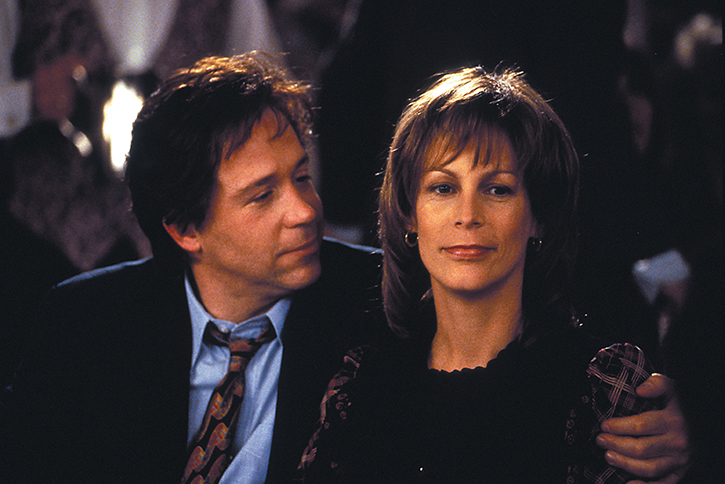
‘The Heidi Chronicles’
Defining self-fulfillment.
by Megan Smith
For centuries, the definition of womanhood and all that it encompasses has been heavily debated. This socially constructed idea, bound by gender roles and expectations, has left women feeling like triangle blocks that a toddler is trying to cram into a square hole. So, can women have it all—a successful career, an equal partner, children, and, most importantly, self-fulfillment?

The 1995 made-for-TV movie The Heidi Chronicles, directed by Paul Bogart, explores this concept. We follow baby boomer Heidi Holland (Jamie Lee Curtis) as she navigates through three decades with her best friends Susan (Kim Cattrall) and Peter (Tom Hulce). A private-schooled, timid virgin in the 1960s, Heidi soon develops into a vocal feminist and activist for women in art during the 1970s. She enters into an on-and-off-again love affair with the “sexually liberated” (which translates into “non-committal”) Scoop, who leaves her feeling both empty and craving more.
She and Susan find community and an emotional outlet in a group of radical feminists led by the outspoken and openly lesbian Fran. However, as time passes, Susan finds a new life working “within the male establishment” as a TV producer in Los Angeles, and Heidi is left in what feels like limbo. She’s always “aiming for a 10,” in life, though she doesn’t know what that looks like for her personally. Despite her career as a successful art curator, she seems to apply her motto of “All people deserve to fulfill their potential” to everyone but herself.
A real turning point in the film occurs when Heidi’s friend Peter, who has come out as a gay man earlier in the film, reveals that his “friend” Stanley is dying of AIDS, at the height of the 1980s crisis. In comparison, “A sadness like yours seems a luxury,” Peter tells Heidi.
Tom Hulce’s Emmy Award-winning performance in the film is more than noteworthy. Although he left the acting world shortly after the film was made to pursue theater production, this film exemplifies his talent. As an openly gay man in real life, Hulce’s performance as a gay man onscreen feels extra authentic and personal in a time where LGBT representation was significantly scarcer.
 Although the film is problematic in some senses, like portraying that a woman needs a child to be happy (Heidi adopts in the end), its overall message can still be applied today, nearly 20 years after the film was released. In an emotional speech at an alumni luncheon, Heidi calls for women to stop viewing each other as competition, judging each other’s life choices, and envying one another. “It’s just that I feel stranded,” she says. “I thought the whole point was that we wouldn’t feel stranded. I thought the point was that we were all in this together.” All women, regardless of race, sexual orientation, gender identity, or how they are bodied, still have a lot of work to do when it comes to being better allies to one another. Because if we’re not all in this together, we’re never going to achieve our “10.”
Although the film is problematic in some senses, like portraying that a woman needs a child to be happy (Heidi adopts in the end), its overall message can still be applied today, nearly 20 years after the film was released. In an emotional speech at an alumni luncheon, Heidi calls for women to stop viewing each other as competition, judging each other’s life choices, and envying one another. “It’s just that I feel stranded,” she says. “I thought the whole point was that we wouldn’t feel stranded. I thought the point was that we were all in this together.” All women, regardless of race, sexual orientation, gender identity, or how they are bodied, still have a lot of work to do when it comes to being better allies to one another. Because if we’re not all in this together, we’re never going to achieve our “10.”
This “manufactured on demand” DVD can be ordered through the Warner Archive Collection (warnerarchive.com or wbshop.com).










